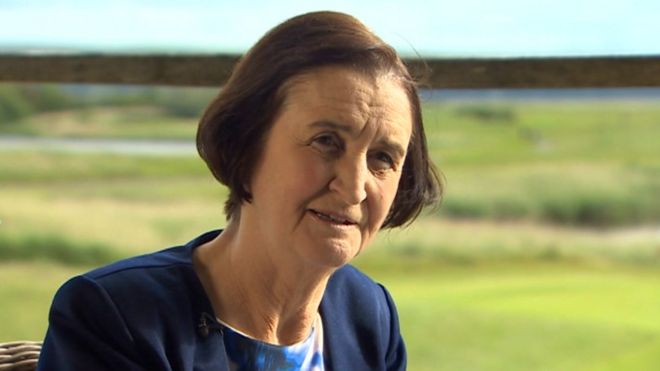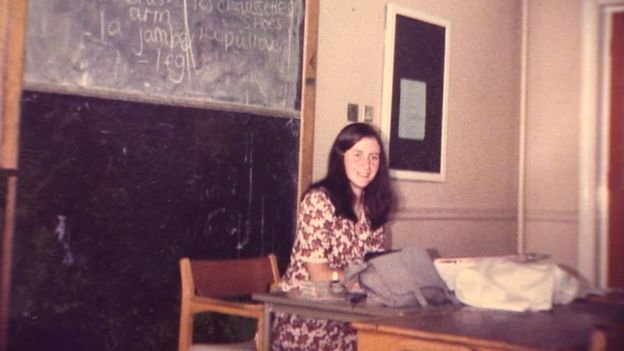
There is a “strong case” for scrapping parents’ right to remove children from sex and relationships education, according to a Welsh Labour MP.
Llanelli MP Nia Griffith told BBC Wales she did not “want to see any child excluded from those lessons”.
The Welsh Government is considering whether to make the lessons compulsory.
A consultation on the issue has concluded but has not yet been discussed by the cabinet.
It has already been announced that Wales’ new curriculum will include new Relationships and Sexuality Education (RSE) in primary and secondary schools.
- LGBT row school ‘should be safe place’
- ‘Huge distance’ travelled on LGBT attitudes
- ‘Plan needed’ to tackle LGBT homelessness
Under the new education system, which comes into force in 2022, teachers will be legally obliged to teach RSE lessons that are LGBT inclusive.
Speaking on the BBC’s Sunday Politics Wales programme, Ms Griffith said the changes were “very much welcome”.
Currently parents and guardians have the right to remove children from sex education classes.
Some religious groups, including the Christian Institute, Muslim Council of Wales and the Catholic Education Service, are opposed to the right of withdrawal being removed.
But the Church in Wales, National Secular Society and Children’s Commissioner have backed the idea.
Asked about the concerns of some religious groups, Ms Griffith said: “We live in a diverse society and what’s important is that every person in that society should feel valued and should be able to speak about their religion and their sexuality without fear.
“It’s very important that whatever an individual has as their particular belief, they accept that there will be other people who have a different viewpoint and that it’s not appropriate to be critical of that alternative.”
“I think it’s about respect for individuals and for respect for people who are not necessarily thinking the same way as you may be thinking,” she added.
 Image copyrightNIA GRIFFITH
Image copyrightNIA GRIFFITHParents have been protesting since the start of the year outside schools in Birmingham because of opposition to classes incorporating same-sex relationships.
Ms Griffith said the protests “reawakened” fears of talking about homosexuality when she was a foreign languages teacher following the introduction in 1988 of a law known as “Section 28” that banned the promotion of homosexuality in school.
She added: “For me, I was actually in a relationship with another female teacher at the time and, so, what do you do? Do you speak up or do you keep quiet?
“As far as we were concerned, I’m afraid we took the option of keeping very quiet and that has a very strange impact in terms of what you talk about in the staff room and how you explain what you do with your weekends or where you’ve been on your holidays.
“I think we’ve come a very, very long way but I still think there’s considerable way to go.
“I still think we’ve got a gap between what is legislated, how you are protected in law in respect of your sexuality, and what actually happens in many workplaces.
“So, I think it’s really important that staff don’t feel intimidated if they talk to pupils about subjects like sexuality and that’s why it’s so important that we have sex and relationship education rolled out across all of our schools, in Wales and in England, and we don’t allow some protests in one particular place to lead to a go slow or a rolling back on…a real inclusive attitude to diversity.”
‘Like being invisible’
Ms Griffith said she had become more vocal about gay rights in recent years despite having come out as a lesbian in 1995.
The Labour MP, who was first elected in 2005, said: “When I first came in as an MP, I didn’t want to just be labelled as the lesbian MP and only be asked about that.
“So, I always said I would be honest if people asked me and I would respond.”
“And then I began to realise, actually, that it was almost like being invisible and I think that there is also a responsibility now to try to make sure that we do have role models,” she added.
BBC Sunday Politics Wales is broadcast at 11:00 BST on 16 June and will later be available on BBC iPlayer.
[“source=bbc”]
